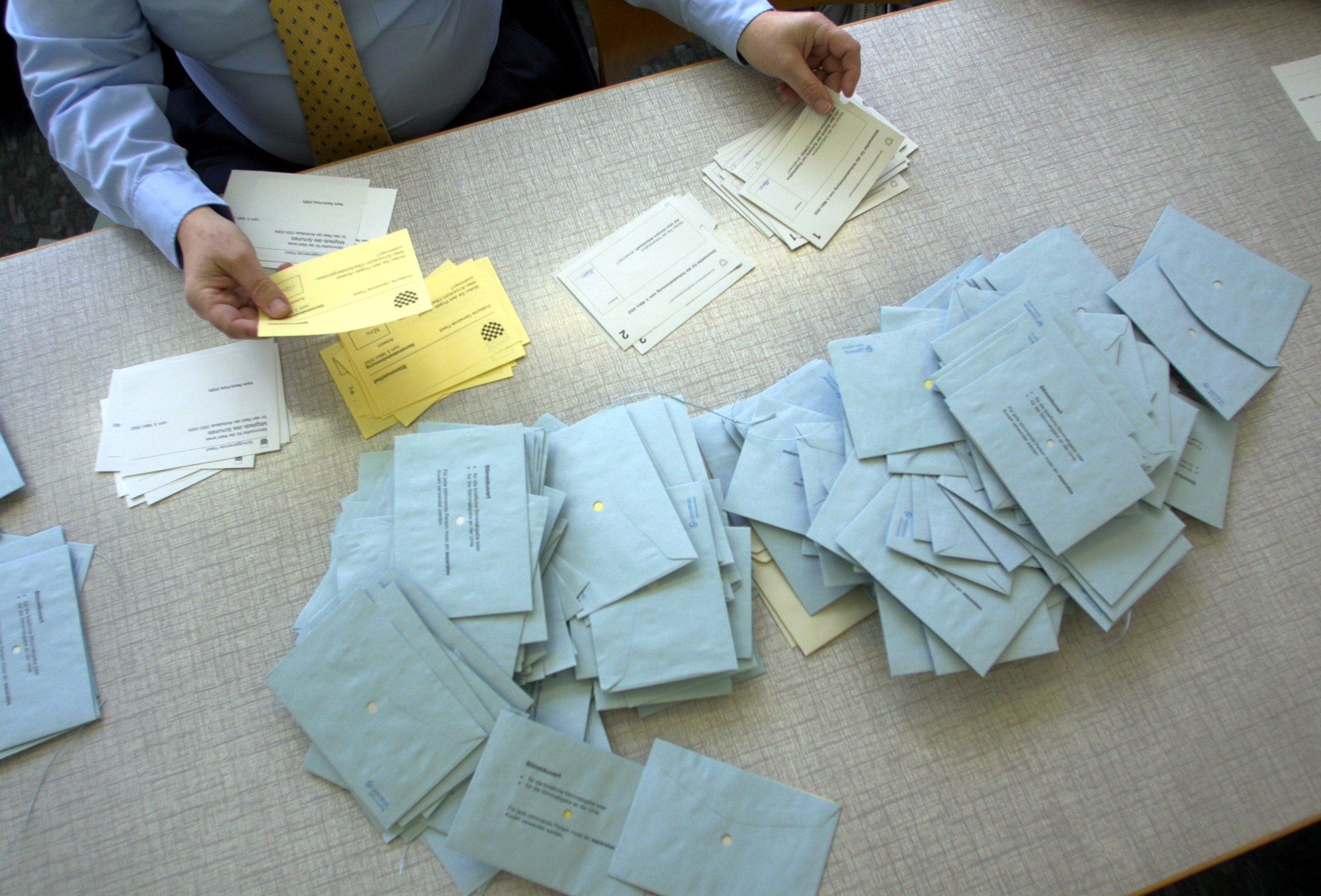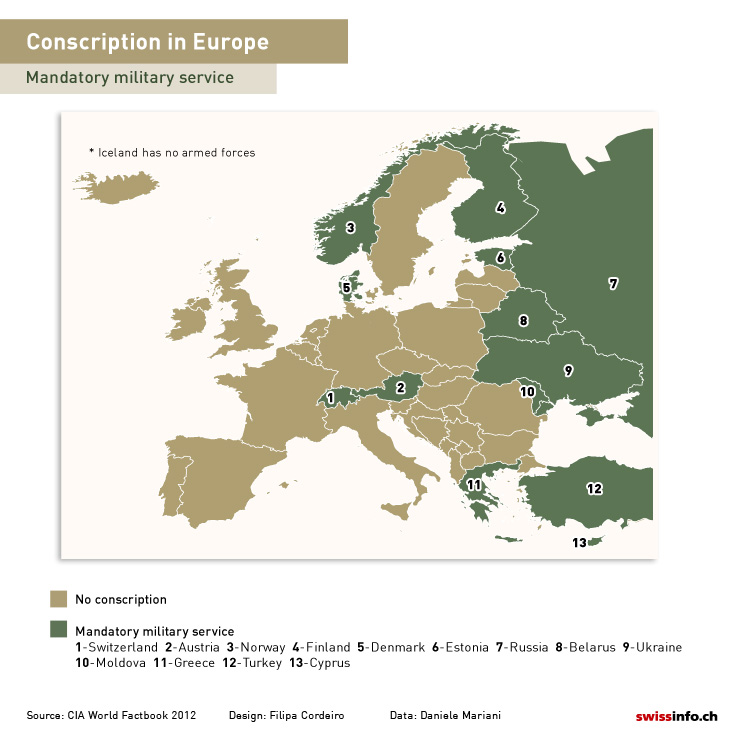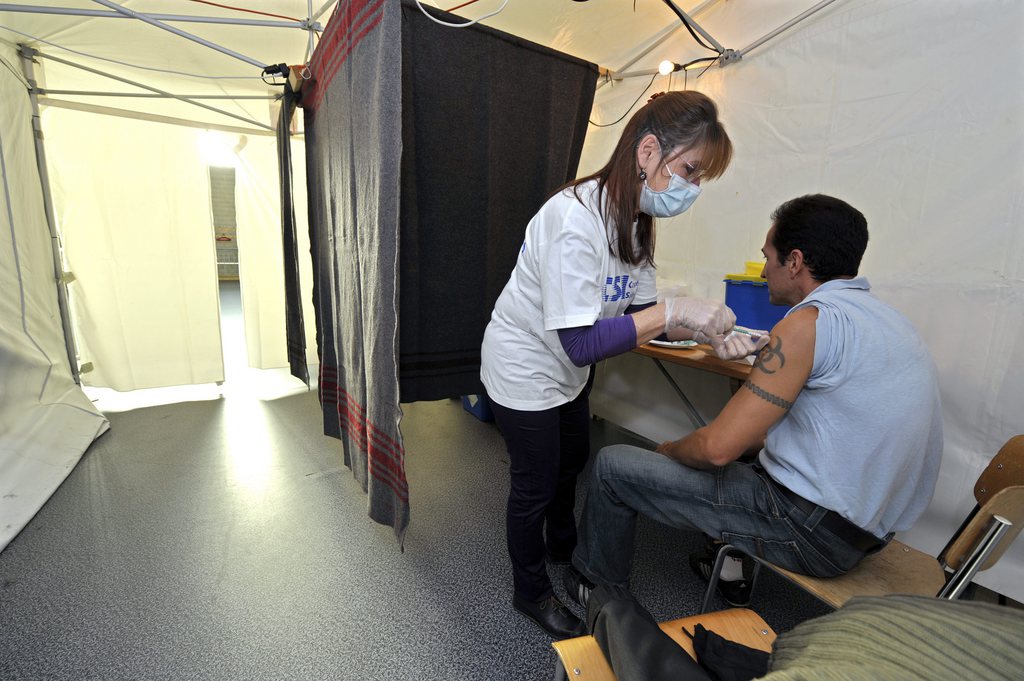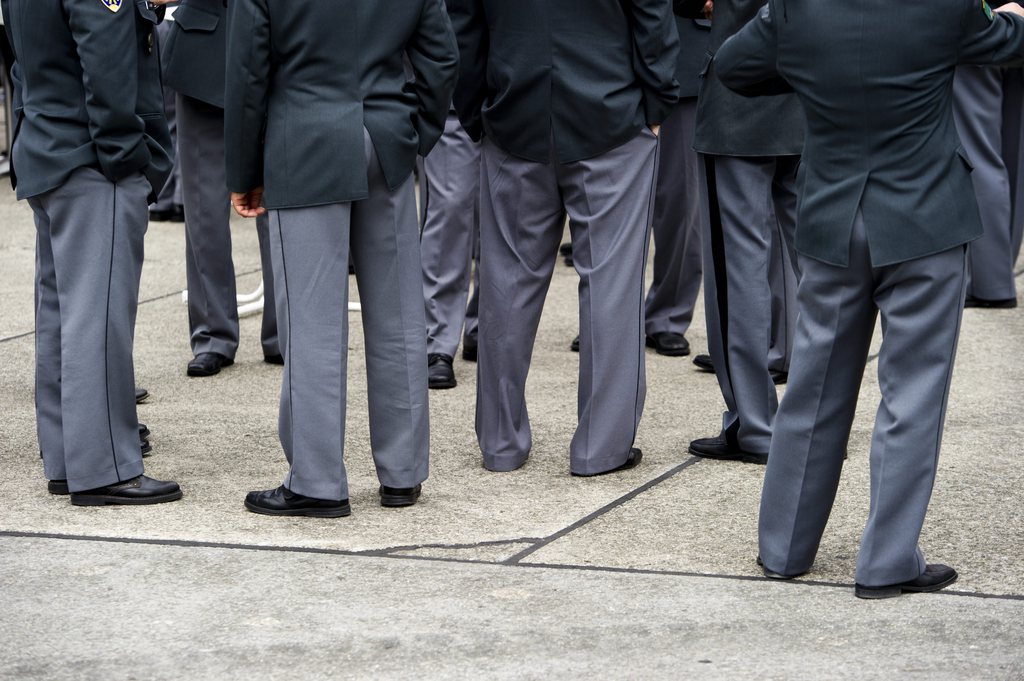Military conscription upheld by Swiss voters

Switzerland will remain one of the last countries in Europe with a mandatory military service. Voters have shot down a proposal to abolish conscription, according to near final results. Also at stake at the ballot box on Sunday: mandatory vaccinations and extended night-time shopping.
About three-quarters of voters said no to the initiative to abolish mandatory military service and instead create a professional army. The initiative was spearheaded by the Switzerland without an Army group and was supported by centre-left parties.
They campaigned on the argument that the Swiss militia army was outdated and too expensive.
Supporters of the current system warned voters that scrapping conscription would weaken Switzerland’s defence capacity and undermine a long-standing tradition. The president of the “no” committee, Jakob Büchler said the vote illustrated just how important the Swiss militia army is to the Swiss.
Political scientist from the GfS Bern polling and research institute, Claude Longchamp, agreed: “The result shows that the army is still very popular despite the criticism of its organization. It remains a tennet of society.”

More
Mandatory military service in Europe
Switzerland without an Army spokesman, Nikolai Prawdzic, expressed disappointment but not surprise over the outcome. He said one of the reasons for the defeat at the ballot box may have been the fact that some on the left of the political spectrum didn’t warm to the initiative, feeling the issue voted upon should not have been ending conscription but doing away with the army altogether.
Sunday’s vote was the third ballot on the army since 1989 when the pacifist group garnered more than 35 per cent of the votes, creating a major political upset in a country where the militia army has been a tenet of Swiss society.
Most countries in Europe have scrapped or suspended conscription over the past few years.
Epidemics
The vote to centralise vaccination campaigns was a much tighter race. About 60 per cent of the Swiss voted to support a decision by parliament to give the government a greater say – at the expense of the cantonal authorities – on when vaccinations should be mandatory.
In the run-up to the vote, the government as well as most political parties argued centralization was important in order to confront global health risks and increasing mobility more efficiently.
Critics of the move – who collected enough signatures to challenge the amended law to a nationwide vote – had warned that Switzerland was becoming an easy target for the pharmaceutical industry and international health organisations.
The rightwing Swiss People’s Party was the only major political group supporting the opponents.
Longchamp said the Swiss had decided to give the authorities a vote of “confidence”.
Voters decide on three separate issues:
An initiative calling for the abolition of conscription and the creation of a professional army instead.
A plan by parliament to extend opening hours of certain shops on motorways and main roads, doing away with restrictions in the labour law.
A proposal approved by parliament to give the federal authorities a greater say on vaccination campaigns.
Shops
It had been equally difficult to predict the outcome of the vote on an extension of night-time shopping hours for some petrol station shops located along motorways and main roads in urban areas. About 54 per cent of voters approved the labour law to liberalise opening hours.
The move was opposed by trade unions. They had challenged the parliamentary support for the change to the law, which will allow the shops in question to offer a full range of goods after hours.
Longchamp said there was a clear divide divide between urban and rural Switzerland, with little support in the countryside for liberalisation.
“Voters were obviously not convinced that the issue is a question of principle. Concern about a further liberalisation remains, but the trend in Europe is clearly pointing towards longer shopping hours,” the political scientist added.
Those in favour of liberalisation, including most political parties and the main business associations, argue limiting the range of products on sale overnight is absurd. They are likely to win voters in urban areas and among high-income earners.
However, trade unions, centre-left parties and church groups are concerned an easing of restrictions would open the floodgates for a 24-hour, seven days a week consumer-based society.
Campaign
The campaigns in the weeks leading up to voting day were low-key. Experts criticised a lack of public debates, leaving many citizens insufficiently informed about the issues at stake.
Longchamp said opponents of the amended vaccination law resorted to online campaigning to make up for a shortage of funds and political backing.
The campaigns were also overshadowed by issues tabled for a vote in November, notably a proposed introduction of a salary cap within companies. The initiative demands that the maximum wage at a firm may not be more than 12 times the lowest salary.
About 5.2 million citizen are eligible to take part in the nationwide votes on September 22. It is the third of four ballots this year.
About 165,000 citizens, notably Swiss expatriates, can participate online as part of ongoing trials with e-voting.
At the same time, elections and votes on a variety of issues take place at the cantonal and local level.

In compliance with the JTI standards
More: SWI swissinfo.ch certified by the Journalism Trust Initiative














You can find an overview of ongoing debates with our journalists here . Please join us!
If you want to start a conversation about a topic raised in this article or want to report factual errors, email us at english@swissinfo.ch.